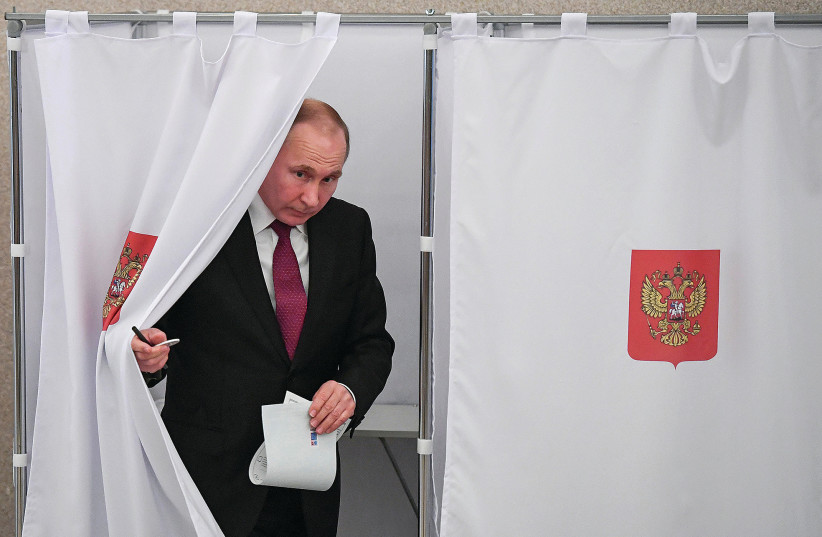The current crisis between Russia and the United States (US) over Ukraine ought to be understood in a wider conceptual and historical perspective. There is hardly any doubt that Russia wishes to modify the post-Cold War international order, as it has evolved since 1991.
The conceptual roots of Russia’s policy in this regard can already be found in February 2007. At the Munich Conference on Security Policy, Russian President Vladimir Putin criticized the prevailing international order, arguing that the US used its military force in an excessive manner and had a tendency for domination.
Viewed from a Russian point of view, Russia’s policy could be seen to be a reactive one. The US and its European allies had pledged at the end of the Cold War that the North Atlantic Treaty Organization (NATO) would not expand eastwards beyond Germany. The Soviet Union and subsequently Russia consented to the unification of Germany, to the process leading to parliamentary democratic systems in formerly Communist countries and to the consequent disappearance of the Warsaw Pact based on the reassurance that NATO would not extend its membership to East European countries, among other reasons.
That pledge was broken. Most countries in Eastern Europe joined NATO, led by the US, and Ukraine and Georgia were promised that their membership would be considered in due course. Such a process was perceived by Russia as dangerous. Stating that NATO has no hostile intentions toward Russia is hardly relevant; what counts is Russia’s perception. Indeed, as far as Russia was concerned, not only a major pledge was broken, but Russia was treated as a second-rate power, whose views could easily be discarded.
In order to understand Russia’s sensibilities in that regard, one ought to dwell briefly on Russia’s historical experience. Russia has been invaded from the West by several enemies, including Napoleon’s France at the beginning of the 19th century, and Germany in World War I and World War II. Russia has always felt vulnerable. Defensible borders for Russia has always meant a secure geographical sphere of influence.

That could emerge either in the form of direct control, as it happened during the lifetime of the Soviet Union, or as indirect influence, as was expected would happen in the post-Cold War period. Thus, to argue that Russia’s neighbors do not harbor any hostile intentions towards it ignores the subjective perception of Russia, which has been shaped by a painful history of threats and invasions from the West.
On the other hand, Russia’s neighbors, used to intimidation and subjugation by Russia for centuries, perceive Russia’s actions as menacing and destabilizing. Rather than wanting to be reassured about its security, Russia has pursued a policy of expansion, wishing to thwart any political move that is inimical to its worldview.
Putin, who said that the collapse of the Soviet Union was a tragedy, wants Russia to become a major power on the international stage. That does not mean it is intent on becoming a revolutionary power, such as the Soviet Union, Nazi Germany or Napoleonic France. Putin’s Russia lacks a strong ideological vision, which is typical of revolutionary powers.
Stating that every country should be free to decide whether it wishes to join NATO, as the US and its allies keep saying, sounds more like a vacuous platitude than a sensible policy. The chances of Ukraine and Georgia joining NATO in the near future are slim. Bombastic statements to the contrary are unwise and counter-productive.
The problem in this crisis is that the US and NATO cannot give in without running the risk of appearing weak. The dilemma of decision-makers in this crisis is how to strike a delicate balance between deterrence and restraint; how to convey to Russia that its ruthless and aggressive tactics will not pay, while relaying a message of reassurance that its legitimate security concerns will be addressed in a serious manner.
Russia’s policy, though historically understandable, is also counter-productive, as it has only served to affirm to European countries that it ought to be feared and make them feel reassured about their decision to join NATO. After all, where would you rather be today, in Warsaw or in Kiev?
The writer is a lecturer in international relations at Tel Aviv University. He holds a doctorate in modern history from Oxford University and a master’s degree in international relations from Cambridge University. His book Turning Points in the History of International Relations, 1908-2008 was published in Britain last year.
